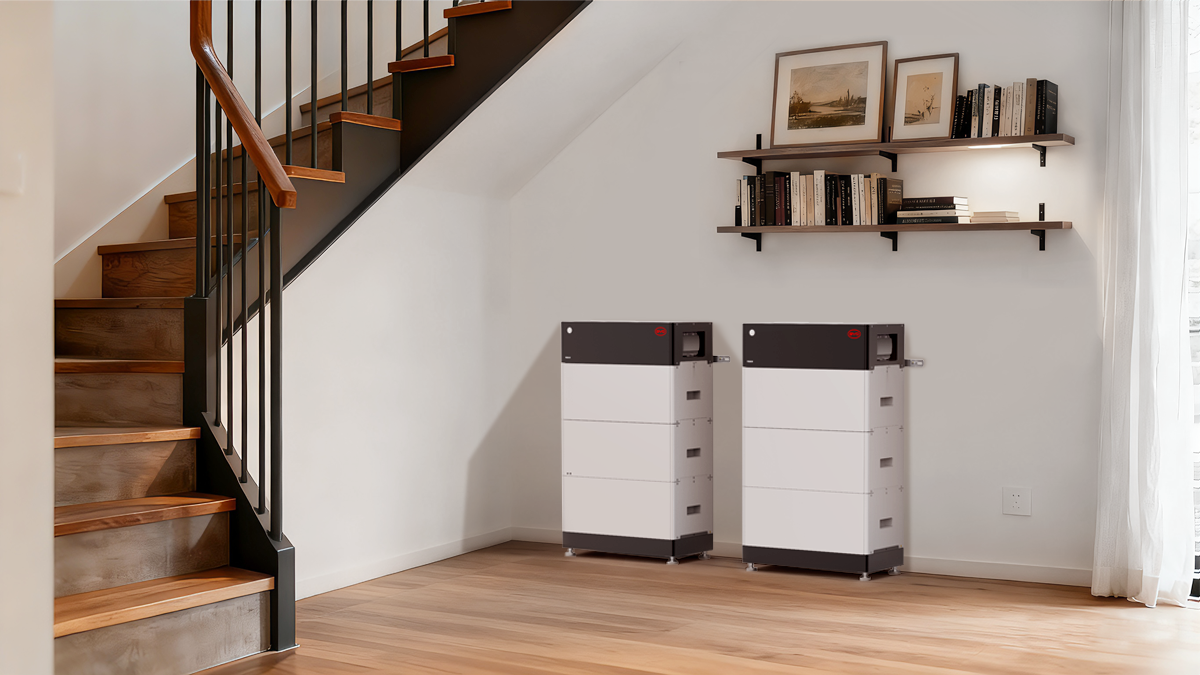- Article
- November 17, 2025
5 Myths About Home Batteries: true or false beliefs?

Five myths about home batteries that sustainable energy experts hear most often
An increasing number of people are becoming interested in energy independence and smarter electricity management at home. One of the key solutions is home battery systems, which allow users to store energy, optimize its use throughout the day, and ensure backup power during outages. However, this technology is still surrounded by various myths and false beliefs.
“People still tend to think of home batteries as a technology of the future, but in reality, they have long been part of our everyday life – in cars, buses, and now, in homes. I believe that most of the myths about home batteries stem from old beliefs, even though technology in this field has advanced significantly, so it is important to base decisions on facts rather than hearsay,” says Martynas Pukinskas, Head of Green Energy Business Unit at ACC Distribution.
Martynas Pukinskas, Head of Green Energy Business Unit at ACC Distribution
Here are five the most common myths about home batteries and the facts that refute them.
Myth #1: “ Home batteries are only necessary for those who do not have access to the electricity grid”
This is one of the most common myths, which has nothing to do with modern battery systems.
“Modern home batteries are designed not only as backup power sources but also as solutions for everyday energy use. They store energy from both solar panels and the grid, and release it when needed. For instance, excess solar energy produced during the day can be stored and used in the evening. In this way, households can consume up to 70% of the electricity they produce themselves,” explains M. Pukinskas.
According to him, there are already various solutions on the market tailored to different needs – from smaller to larger households. “One of the possible choices is BYD modular battery systems, such as HVM or HVS, which allow you to easily select the required capacity and adapt the system to the specific electricity consumption of the user,” adds the specialist.
In addition, batteries can ensure power supply even during power outages, making them not only economical but also a reliable solution.
Myth #2: “Home batteries are not safe”
People often fear that batteries may pose a fire or explosion hazard, especially when they hear about isolated incidents or see devices of unknown origin on the internet. However, modern, certified batteries manufactured by responsible manufacturers meet strict safety requirements and are completely safe to use in the home environment.
“The batteries manufactured by BYD, which we represent, use lithium iron phosphate (LFP) technology, which is characterized by thermal stability and minimal fire risk. This technology is non-toxic, recyclable, and considered one of the safest,” explains M. Pukinskas.
The fact that BYD has more than 30 years of experience and that its batteries are successfully used in millions of electric cars and buses around the world speaks volumes about safety. The company applies the same technology in home energy storage systems.
Myth #3: “Batteries don’t work in winter”
Some people believe that batteries lose their efficiency or stop working in cold weather, often comparing them to electric vehicle batteries, which lose their range at low temperatures. However, home batteries work differently—they are designed for long-term, stable operation even under challenging conditions.
“All batteries react to temperature in one way or another, but modern systems have smart management technologies. For example, BYD’s smart battery management system (BMS) automatically regulates charging and discharging processes to maintain efficiency even at sub-zero temperatures,” says M. Pukinskas.
BYD HVS and HVM batteries operate at temperatures ranging from –10 °C to +50 °C, making them ideal for the Lithuanian climate. However, experts recommend installing them indoors or in an unheated but protected room to ensure a longer service life and more stable performance.
Myth #4: “Batteries wear out quickly”
Battery life is one of the most common concerns among buyers. However, modern systems are designed to ensure long-term, stable performance even under heavy use.
“Modern batteries are designed to last a really long time. For example, BYD residential batteries come with a 10 years warranty – proving their durability for years of everyday use. And the modular design makes it easy to expand or replace if needed.” emphasizes M. Pukinskas.
Home batteries are designed on a modular basis, so that if necessary, not only can the system capacity be changed or expanded, but it can also be gradually upgraded without replacing the entire system. Each battery module also has its own control system, and the integrated smart battery management system ensures even wear and tear, allowing for stable operation throughout the entire service life.
Myth #5: “Home batteries do not pay for themselves”
One of the questions buyers ask before purchasing home batteries is whether this investment will pay for itself. Naturally, most consumers expect clear figures and a quick return on investment, but there is no single answer regarding the payback period, as it depends on many factors.
“Every household’s consumption is different, so the payback period is individual. It all depends on electricity tariffs, solar energy production, consumption habits, and even the region,” comments M. Pukinskas. According to him, electricity prices have been fluctuating frequently lately, and the general trend is toward growth, so batteries allow you to reduce your dependence on the market and the conditions of electricity suppliers.
M. Pukinskas notes that people are increasingly viewing batteries not only as a financial solution, but also as a guarantee of energy independence: “Home batteries can be viewed not only as a sustainable solution, but also as an insurance policy. It gives you control and peace of mind about your home’s energy,” he says.
Another important aspect is technological progress. Over the past decade, battery prices have fallen by more than 80%, so this is no longer a niche investment or one that is only available to enthusiasts. Government support also contributes to the economic benefits, as these subsidies further reduce the payback period.

